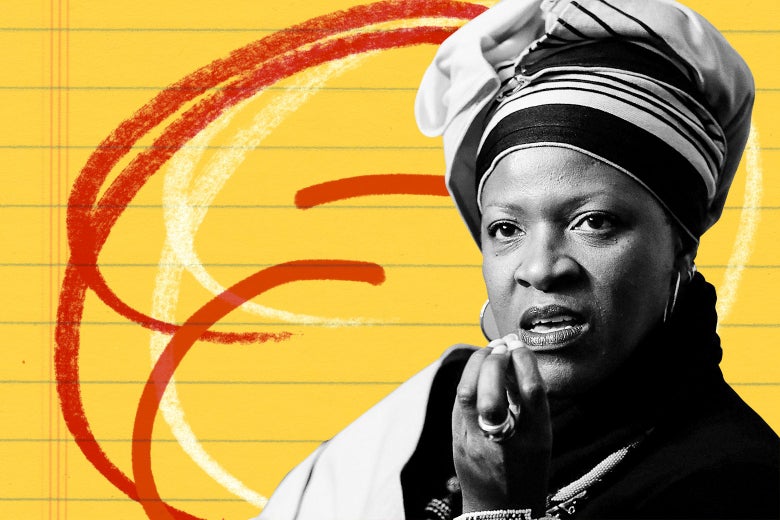
On a recent episode of How To!, the Rev. Mpho Tutu van Furth, the daughter of Archbishop Desmond Tutu and author of The Book of Forgiving, opened up about how she came to forgive a murderer. On April 12, 2012, Mpho returned to her home from a day in Cape Town to find her housekeeper Angela lying on the floor. She had been stabbed to death. In this episode of How To!, Mpho shares the difficult journey of learning to forgive Angela's murderer-and in the process, to free herself. This transcript has been condensed and edited for clarity.
Mpho Tutu: My brother-in-law and I found Angela. It was really strange that she hadn't answered the door and she hadn't the phone and she hadn't said where she was. And so, we walked through the house and found her tied up in my daughter's bedroom with a lot of blood. As it turned out, she was murdered by somebody who had been working for me as a gardener.
Charles Duhigg: The gardener, Mpho says, had been stealing things from Mpho's family when Angela interrupted him.
And I remember vividly the police officer asking, "Was anything taken?" And I remember thinking, "Yeah, a life."
The young man who killed Angela was somebody whom I knew. And so, I needed to be able to forgive him in order to make space in my life to move on. Forgiveness isn't a requirement. It's not an "ought to" or "should." I would never put "should" next to "forgive." But I think that what you do discover in the process of working towards forgiveness is that it's not the person who you forgive who's the ultimate beneficiary-it's you, yourself.
In a way, if I say, "I forgive you," I'm saying, "I no longer reserve the right to take revenge on you for that thing that you have done." The experience of walking around with something that is unforgiven is that every time the image of that person comes up who you haven't forgiven, there's a churning that you experience-an anger, an anguish, a hurt. In a way, they get to decide how you're feeling. They get to have the decision of what your day feels like by how much they intrude on your consciousness.
Angela was someone who had come into your house and had looked after your children, someone who was a part of your family. What was that like initially when she was first murdered and you learned that it was someone else in your house who had done it? And how did your feelings evolve over time?
The initial feelings were shock and rage, not even anger. It was literally seeing red. I felt a deep sense of violation. How dare you?
What was the gardener's name?
Olwethu.
Did you have a relationship with Olwethu?
Yes.
How did you feel when you learned that he was responsible for the murder?
A deep sense of betrayal. And the sense of it also coloring the relationship that we had in the past.
One of the things that really began the healing process for me almost immediately was telling the story to my friends and my church community. Telling the story was really the beginning of that healing process.
There is a story of your own losses, for which forgiveness may be necessary. You can't forgive on his behalf, but you can soften the edges of the pain that you carry because of him. You can't forgive for him, but you can forgive for you.
If you did see the gardener again, what would you want to tell him?
I would want to tell him that he really hurt my heart. I still can hear vividly Angela's mother's scream when I called her. Angela was from Zimbabwe and her mother still lived there so I phoned to tell her. And she just wailed into my ear. It was just such a piercing cry. I can still feel it in my bones. And all of that said, I know that there is so much more to him than what he did on that day.
Having gone all of my way through the forgiveness process, I am able to reclaim the young boy who I took halfway up Table Mountain for the first time and to remember the wonder in his eyes as he looked out over the city, to reclaim the joy I had in that person. And also, to feel really sad for him. He was young. He was in his 20s when he did this. And just to be able to see him as a human being and not to have the full description that I carried of him in my head be, "He is a murderer."
To hear Mpho help a listener forgive not a murderer but her mother, listen to the episode by clicking the player below or subscribing toHow To! with Charles Duhigg wherever you get your podcasts.